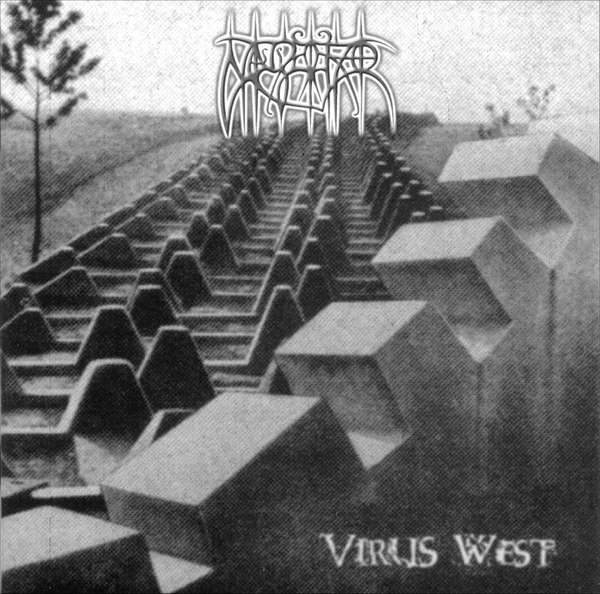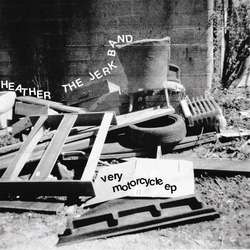In Norse Mythology, the Naglfar is a ship built, naturally, from the fingernails and toenails of the dead. Black metal always has been, and I suspect always will be, an odd one for me. Whilst I'd really rather have as little association as possible with the corpse paint, witch hats, and general chastising of Christianity, the dripping black atmosphere is something that does carry its own enigmatic appeal. Hearing Emperor for the first time came close to shifting the paradigm; never before had music forged such evocative, storylike imagery in my mind. Then I found post-rock.
It's a rare occasion then, when a black metal act does manage to grab my attention. Usually, it needs a hefty recommendation or an appeal all of its own. The mechanical horror of The Axis of Perdition caught my ear, sounding like a cross between Silent Hill, a washing machine, and nightmares that make my own look like Monty Python sketches, yet most else seems to be thrown under that same black and white banner of incomprehensible logos.
This reissue of the now-defunct and widely celebrated Nagelfar's Virus West (2001) I can just about tolerate. Perhaps it's the production, completely devoid of the muckiness and skull fragments that often define black metal, or maybe it's the music itself. I don't want to offend Nagelfar by calling them accessible or anything, but within the first five minutes of "Hellebarn" it's definitely perceptible that hey, it's "actually kinda catchy." Behind the impenetrable wall of blastbeat and atypical fiery arpeggiation, there's a definite sense of melody. For shame?
Nagelfar are German and so are their lyrics, as if that matters in this particular genre. Whilst the vocals are pretty standard black metal affair, for the majority of the record the amount of shrieking neutralizes any lingual differentiation. Musically, Nagelfar are commendable if not particularly innovative in that a number of tracks do manage to mix things up, with obligatory storm sound effects, acoustic interludes and chanting abound, whilst "Sturm Der Catharsis" features a groovy Black Sabbath-esque riff. Although their effects aren't as profound as those of, say, Opeth, these breaks in the mold are usually appreciated.
The (apparently badly-synthesized) trumpets of "Westwall" however, gave me the same feeling of frustrated vexation that occurs when ketchup is dripped onto a clean shirt. Ruined through sheer ridiculousness, there's nothing you can do about it. Listening with a little mental visualization seemed to help somewhat; as the boat drums pounded harder, the crew seeming to drift further into dark and inescapable fog, there was a glimpse, a flicker of optimism. Then just as something was about to happen, the next track began.
As punishing as this unexpected segue into "Fäden Des Schicksals" is, and it really does kill, the album only lasts seven songs and having a cul-de-sac fanfare as one of them is a little overkill for my atmospheric needs. But if you can dig it, the trumpets do make a cameo on the final track.
Purists may beg to differ, but as a casual fan of black metal, Virus West hardly seems a masterpiece. At its peaks it does seem as though this might be such a case, but all too often it degenerates into long passages of squeals and unimpressive blastbeats. That being said, I am positive that Virus West would be an ideal starting block for anyone looking to dip their toes into black metal. In the end it does kind of slay - stab, to be safe - and despite its apparently mature take on the format it does recall images of churches reduced to rotten husks, yet a strong guitar presence, controlled drumming and most importantly, clarity, in a ubiquitously inaccessible genre, make for a solid record and a slow but gratifying initiation.



